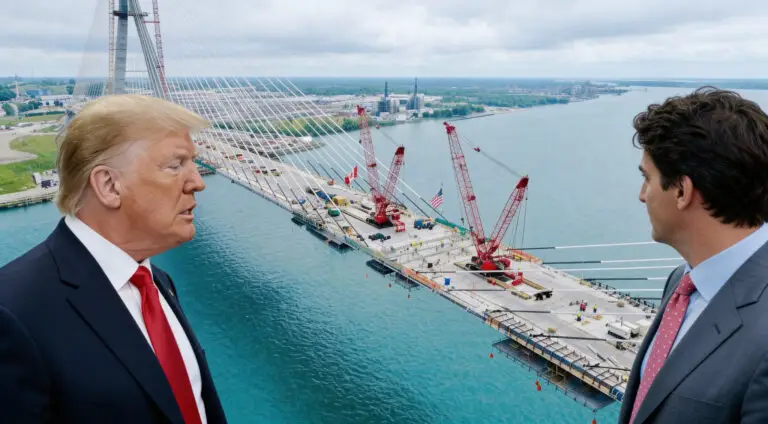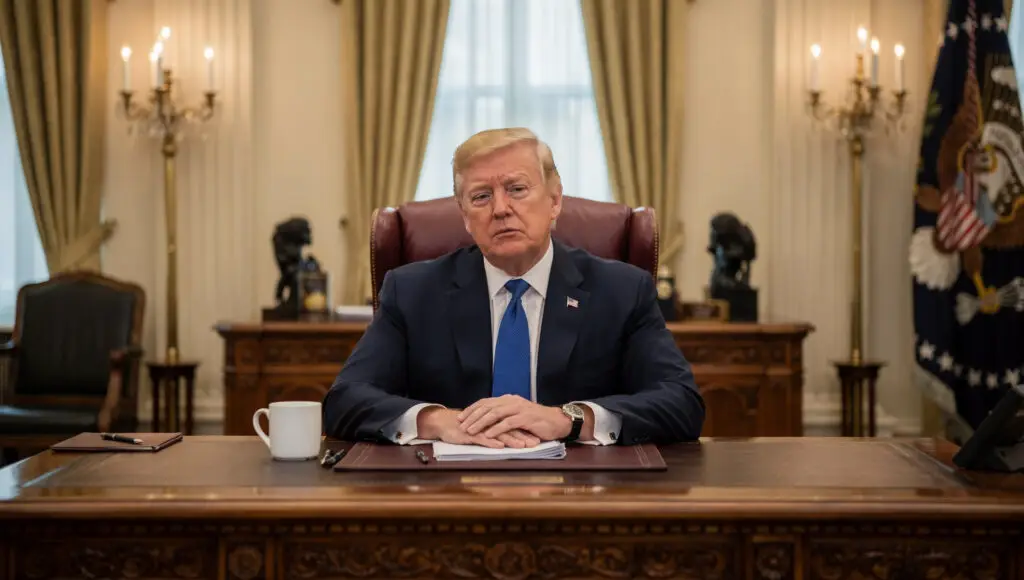As pressures within the ruling Zimbabwe African National Union Patriotic Front (ZANU-PF) escalate, Zimbabwe is on the brink of increased political volatility. Analysts have become more concerned that the party’s ongoing infighting could lead to severe unrest or even a civil war.
A Call for Change: Challenges to Mnangagwa’s Rule
The current crisis issue for the ZANU-PF faction is the openly harsh criticism of President Emmerson Mnangagwa. Reports of an intended extension of his final term past 2028 have led to his own party increasingly working to oppose him.
The War Veterans’ Voice: Leading the Charge
One of the more outspoken figures in this case has been Blessed Geza, a former senior ZANU-PF member and a veteran of the 1970s liberation war. Geza is currently promoting the idea of nationwide protests demanding an earlier resignation from the president.
Muted Response: Low Turnout For Protests
Geza’s calls for protests on Monday certainly mobilized citizens, but their response was surprisingly muted. Even though some individuals did show up in certain locations, they were met with a strong police presence and most citizens decided to remain indoors, presumably due to fears of violence or social disorder. Regardless, Geza continues to galvanize support, rallying folks to Zimbabwe’s digital platforms, imploring them to step forward and demand real change.
The Ousting of Mugabe: A Lingering Shadow
Mugabe’s ousting in 2017 gave rise to the current political unrest in Zimbabwe. With Mnangagwa coming into power, the nation had experienced a military coup, but as he put his footing on the ground, deep-rooted troubles surfaced. In Blessing Vava’s opinion, he has been observing the Crisis in Zimbabwe Coalition for years and calls them deeply rooted, saying that Mnangagwa’s attempts to dominate the political narrative have created deep-seated struggles in the country.
Accusations of Corruption: Fueling Public Discontent
In his desperate attempts to remain in power, the president has neglected basic public demands. Adding on to the rubbing of the hot sand on the wound, he has introduced policies that are seen as too merciless. If something isn’t done soon about Mnangagwa, he will single-handedly lose their faith, leading to dire outcomes.
Consolidation of Power? Questionable Changes in Leadership
The recent changes in governance executed by Mnangagwa seem to have raised toes and speculation regarding the motives behind them. He transferred one of the country’s army heads, Anselem Sanyatwe, who was perceived to be sympathetic towards Vice-President Chiwenga, to the position of the sports minister. Some people view this, together with the rest of the removal of the police chief and the head of Zimbabwe’s intelligence, as a consolidation of power while removing potential contests.
The 2027 ZANU-PF Congress: Succession War
ZANU-PF is set to convene its elective congress in 2027, which is expected to be the time to select a successor to Mnangagwa. This congress is turning out to be a pivotal point within this struggle for power. The vice president of the Akwande Republic, Constantino Chiwenga, who was prominent in the overthrow of Mugabe, seems to be one of the strongest candidates for presidency. Still, Chiwenga’s decision to join the silence policy on demands for Mnangagwa’s early departure has thrown it into the limelight.
The Issues with Citizens: In the Line of Fire
Politically, Zimbabwe is prone to conflicts among party leadership and such tensions can threaten the balance within the nation. It is ordinary citizens who are left vulnerable to abuse during this period. Protests and other social disruptions cause businesses to close, which directly impacts the informal economy where most of the citizens have found sustainable livelihoods. People such as Esnath Makaya are vendors who are unable to earn a living from the market, meaning they are unable to feed their families.
Financial Dangers: A Risk Within the Region
Lack of investment into the nation alongside debt and overspending are the greatest ways to stagnate an economy with lower global competitiveness. In Zimbabwe, foreign investment will greatly affect the recovery of the economy. An analysis of the situation proves that the internal squabbles within the ruling party are politically dangerous for the country as they slow down recovery.
Overreliance on foreign aid will hurt local businesses, resulting in worsening the already approaching zenith stagflation. With Zimbabwe, it is clear that they have reached the gray area where people no longer have hope. The fight within the ZANU-PF party will enable the growth of more public hatred towards the regime. As a result, negative public sentiment will only further act as a compounding force, worsening the power already bestowed upon the party. People need concrete change, not the same old broken promises while leaning on politically motivated relocations to sustain the economy.













